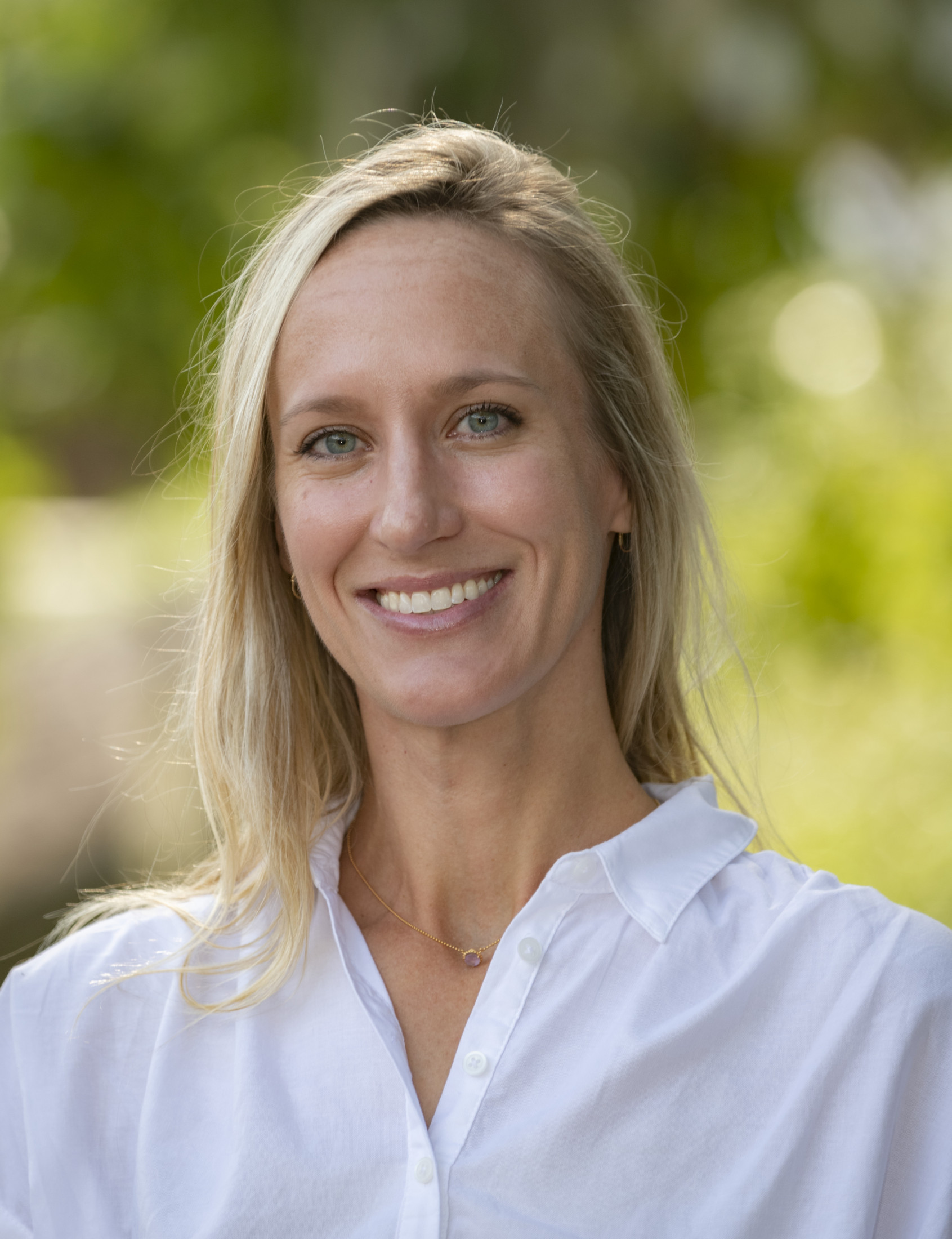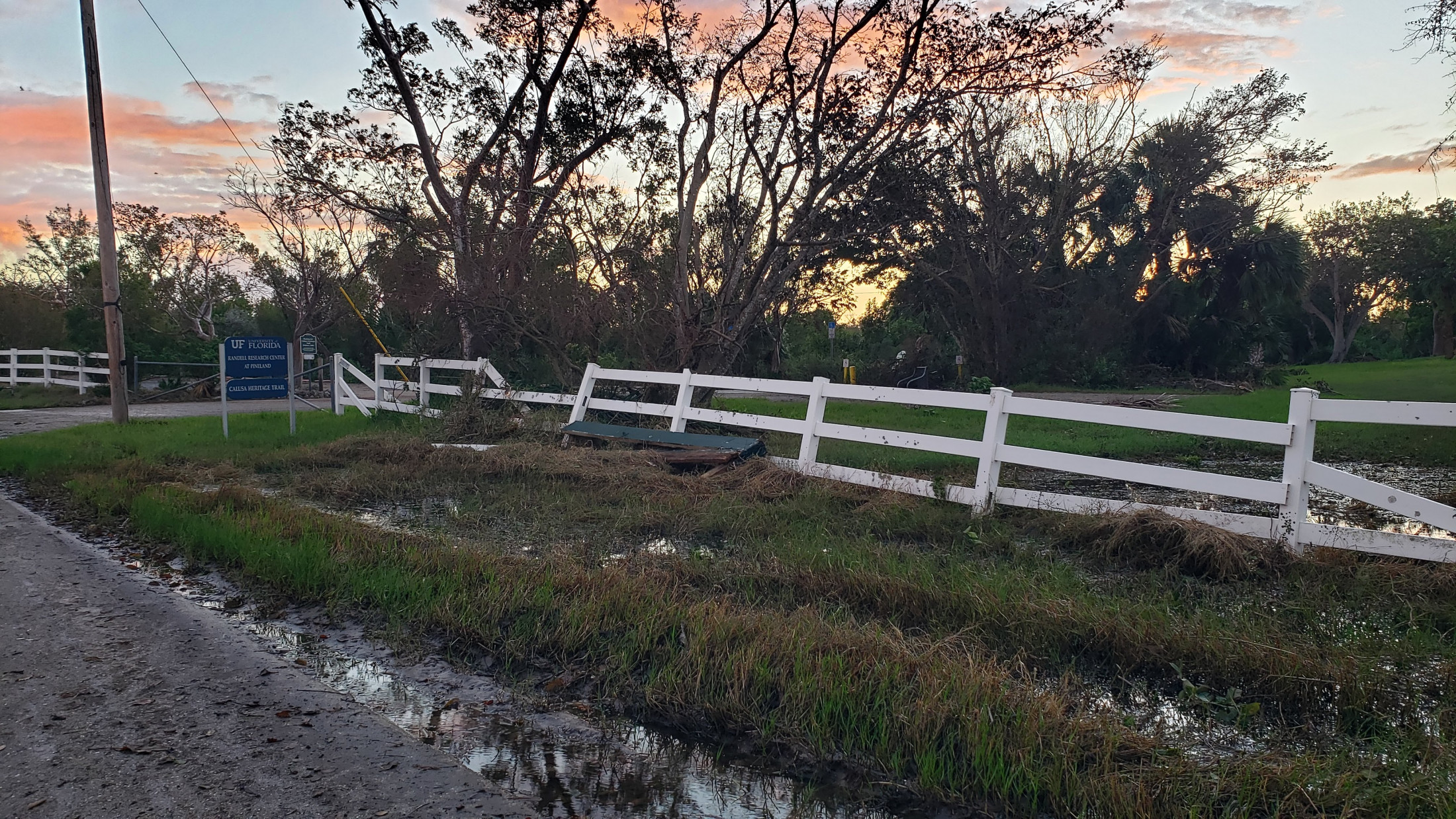The Florida Museum’s Randell Research Center has a new director! Michelle LeFebvre, curator of South Florida archaeology and ethnography, as well as Caribbean archaeology, at the Florida Museum of Natural History, began her three-year tenure as director in July. The Randell Research Center was established by the Florida Museum in 1996 on Pine Island along the southwest Gulf coast of Florida. The area was once home to the Calusa people, and parts of the island now serve as an archaeological cultural heritage site.
“It’s an incredible opportunity to be able to work with the amazing staff of the center, care for a place like this and help support a group of invested community members,” she said. “The Randell Research Center is the premier off-site location of the Florida Museum serving our mission to inspire people to care about Florida’s cultural heritage and biological diversity.”

Florida Museum photo by Kristen Grace
LeFebvre specializes in the archaeology of human-environment interactions in island and coastal environments of Florida and the Caribbean, and she is especially interested in relationships between people and animals in the past. She works with community members and scientists across multiple disciplines to look at historical events and trends from different angles to determine how they affected modern patterns of biodiversity. Some of her recent research also delves into the links between cultural heritage and natural resources, and how conserving both can support community resilience to climate change and natural disasters.
She previously served as the center’s assistant director under Charles Cobb, the Florida Museum Lockwood chair in historical archaeology. Together, they helped shepherd the center through the difficult circumstances of the damage caused by Hurricane Ian. The 67-acre site sustained a direct hit by the category 4 hurricane in September 2022. Storm surge of up to 18 feet inundated coastal areas, and gale-force winds toppled trees, houses and the bridge connecting Pine Island with the mainland.
Still in the process of recovering from Ian, the center and surrounding community were significantly affected by two major hurricanes earlier this year – category 4 Helene in September and category 3 Milton in October.
“These hurricanes clearly brought a lot of devastation,” said operations manager Annisa Karim. “They have the power to literally turn our world upside down, but they also allow us to think of the Randell Research Center and the role it plays in demonstrating how climate change affects community resilience and cultural heritage sites and the way we manage them.”
LeFebvre and Cobb secured emergency funding from the National Science Foundation after the hurricane in 2022 to survey Calusa sites around Pine Island Sound and Estero Bay. This work is ongoing and has been extended to include surveys after Helene and Milton. In addition to assessing impacts at the center’s Calusa Heritage Trail, LeFebvre works closely with site managers at Mound Key, Mound House and Calusa Island to assess hurricane damage and implications for climate change management plans.

Florida Museum photo by Annisa Karim
Such efforts are critical to preserving the area’s cultural history. The Calusa lived in Southwest Florida for more than 1,000 years and left behind shell mounds, middens and the vestiges of a canal system. All of these landscape features are at risk from increasingly powerful storms and rising sea levels fueled by climate change.
“The Pineland Complex is important for what it holds about the past and the stories of climate change response among the Calusa, but it is equally important and remarkably significant for what it means as a place, as heritage, in the present and to the diversity of communities that feel attachment to this place,” LeFebvre said. “Our job is to respectfully protect this landscape and make sure it continues on for generations.”
Archaeologists have studied many of the artifacts and architectural features on the island, which has contributed significantly to the understanding of the Calusa people.
This work has been especially important in the context of historical ecology: the study of how humans have interacted with and shaped their environment through time. The Calusa were skilled engineers and altered the landscape to suit their needs, both to sustain their community long term and to withstand periodic natural disasters.
At its most populated, as many as 20,000 Calusa were in Southwest Florida, all of whom lived almost entirely on estuarine resources such as mollusks and fish. They developed a sophisticated and powerful society in Florida and successfully resisted early colonization efforts by the Spanish in the 16th and 17th centuries.
The center was recently featured as a prime example of how archaeological heritage sites can be used to support historical ecology research while simultaneously engaging in museum community outreach and public education.
“We’ve traditionally been leaders in Calusa archaeology and historical ecology, as well as public education. This is still fundamental to the Randell Research Center,” LeFebvre said. “As our academic and community partnerships evolve on Pine Island, in greater Southwest Florida and within UF, we are also leading in cultural heritage preservation and biodiversity conservation.”
LeFebvre also plans to find additional ways to support local and statewide communities by making research, exhibits and educational materials from the Florida Museum more accessible to a diverse audience through the Randell Research Center. She will continue to work closely with Karim on hurricane repairs and improvements to infrastructure and on making the center a resource for everyone looking to learn more about Florida’s past and present. She is especially grateful for the hard work of staff and volunteers, who have shaped and cared for the center over the last 25 years.
“Moving into a directorship role, I am so excited to learn from the long-standing RRC community of supporters and volunteers, and to work together to continue to grow community involvement with the center and explore additional ways we can serve Pine Island and South Florida,” she said.
Visit the Randell Research Center’s homepage to learn more and find ways to support the site’s mission.
Sources: Michelle LeFebvre, mlefebvre@flmnh.ufl.edu;
Annisa Karim, akarim@floridamuseum.ufl.edu
Media contact: Jerald Pinson, jpinson@floridamuseum.ufl.edu, 352-294-0452